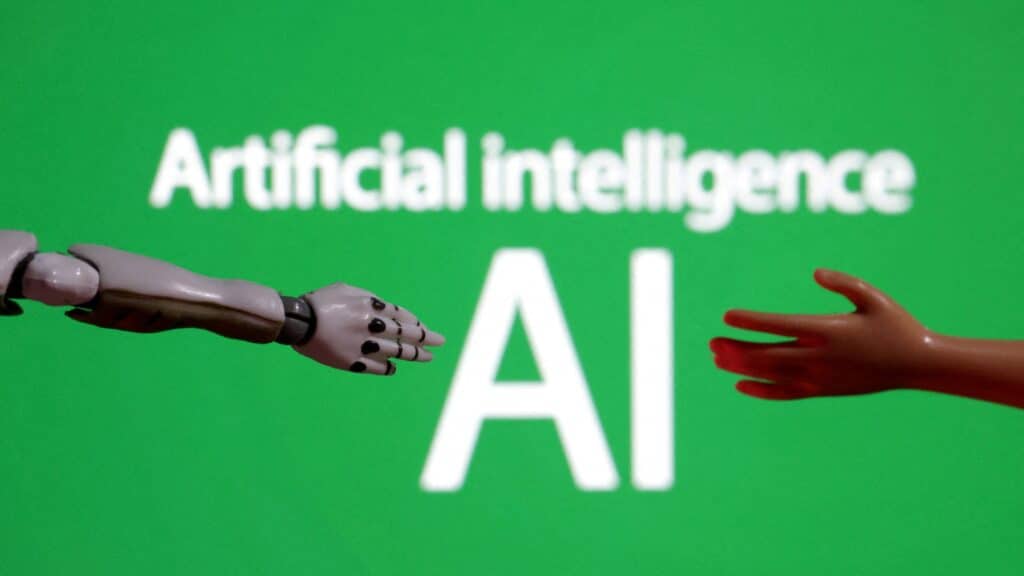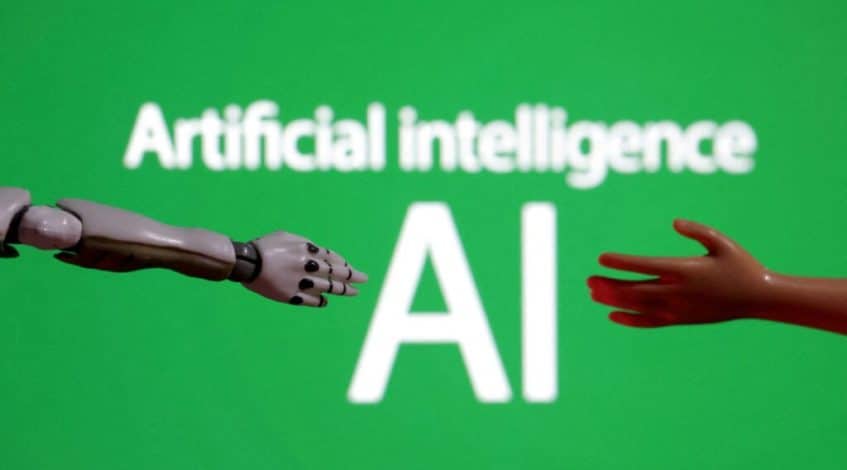
(OSV News) — Executives from the apologetics nonprofit Catholic Answers told OSV News they remain committed to exploring artificial intelligence after the launch of the group’s “Father Justin” AI project sparked intense backlash online — and resulted in the character’s swift “laicization” to just “Justin.”
“We’re no less resolved to make good use of this technology to continue our work of apologetics and evangelization,” Christopher Check, president of Catholic Answers, told OSV News. “We regard this (incident) as an opportunity to take some feedback and move forward with it.”
Check’s team debuted a “Father Justin” interactive AI app April 23, aiming “to provide users with faithful and educational answers to questions about Catholicism,” according to an announcement that day by the organization.
The grey bearded, bushy-browed Father Justin character — named for St. Justin Martyr, a second-century convert and apologist — was intended to be what Catholic Answers information technology director Chris Costello, quoted in the company’s April 23 announcement, had called a tribute to parish priests, and an “authoritative yet approachable” figure on Catholic teaching.
But Father Justin’s preference for addressing users as “my child,” and his statements indicating he could actually give absolution and preside at the sacrament of matrimony, drew howls of condemnation in Catholic cyberspace.
By approximately 5 p.m. EDT April 24, Father Justin had fallen silent, gazing with a contemplative air toward a point out of the screen frame — only to re-emerge a few hours later in a button-down shirt as what Catholic Answers called “just ‘Justin.’”
Check told OSV News that criticism of the app was down to “a combination” of concern over some of the app’s responses, and the AI character itself.
“I think there are some people who simply reacted to a cartoon priest,” said Check, adding that “it would be evident to anybody who’s looking at it that in fact it’s not a real priest.”
Check said the move to make the app’s face simply “Justin” was a concession to those who found the character “a distraction” that hindered “the purpose of the application, which is to provide sound answers about the Catholic faith.”
“We’re good listeners,” Check said. “That’s one of the reasons we’re good apologists.”
Check admitted he and his “entire executive team” had been “a little taken aback by the particularly hostile reaction that we received on social media” regarding the app.
Such outrage “tends to be endemic” to social media platforms, Check added.
“I think that people who otherwise would have given some sort of thoughtful consideration of the merits of AI and answering … questions about the Catholic faith instead jumped onto (a) sort of more viral path,” he said. “And to me it’s kind of one of those unfortunate indications of the divisions that our church is feeling right now.”
Check said that some users (who had to provide email addresses and cell phone numbers to access the app) “were deliberately trying to trick it … which is what people like to do with AI or ChatGPT. We discovered while going through the log that one person who finally got (the app) to err (in its responses) in fact has a substantial background in AI.”
Costello told OSV News that he and his development team “knew that (the AI app) was going to be controversial.
“We know there’s a lot of concern in the Catholic world about AI in general — how it’s used, in fact, in not just the Catholic world, but in the world,” he said.
Costello said the app had been proposed by an AI consultant who is a Catholic Answers radio listener and fan. He said the project — the first AI undertaking for the company — had undergone “four or five months” of development.
The software’s initial character, a Franciscan friar named “Brother Geppetto,” was transformed into Father Justin, with the app’s original background — the Basilica of St. Francis of Assisi in Italy’s Perugia province — left intact.
Part of the testing included feeding the app inquiries from “actual callers on our radio show, to see if (the app) could answer the questions,” said Costello. “And of course the answers were different (from those of the Catholic Answers radio hosts), but still accurate.”
Like Check, Costello stressed that the organization’s “goal is not to lead someone down the wrong path” with the app.
“It’s a start to your journey,” he said. “It’s to help you hone your questions so that you can really have a discussion with your priest or spiritual advisor, if there’s something you don’t understand. It’s not the end at all; it’s the beginning.”
Check said he was not concerned the troubled rollout of the app would erode trust in Catholic Answers as an apologetics apostolate.
“There’s been some ‘pearl-clutching,’ (but) … it’s obvious this was at best a misstep or failure to read the room,” he said. “But the Catholic Answers brand and our reputation is nearly 40 years old. And it’s backed by the talent and the profound knowledge of … (our apologists) and executive team and staff.”
Oblate Father Thomas Dailey, John Cardinal Foley Chair of Homiletics and Social Communications at St. Charles Borromeo Seminary in Wynnewood, Pennsylvania, told OSV News that the “Father Justin” launch, though fraught, has not been without merit.
“The response to what happened shows people’s interest in both the technology and its application for faith matters,” he said. “That Catholic Answers took all of that feedback and benefited from it or acted on it — and their interest in moving forward to help people — is a compliment to them.”
“We’re guided by our intentions,” Check said. “And we know that if we’re doing what we’re doing out of love for Jesus Christ, which is why we act, (then) God will bless it.”
Gina Christian is a multimedia reporter for OSV News. Follow her on X (formerly Twitter) at @GinaJesseReina.

